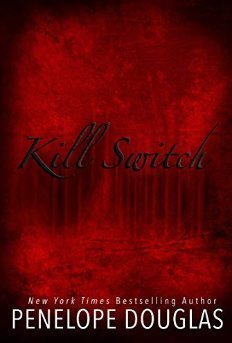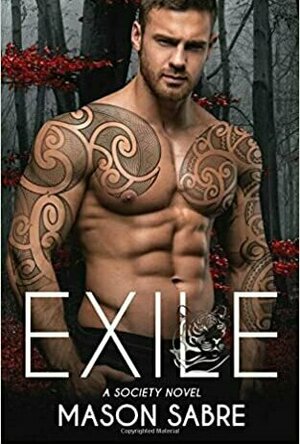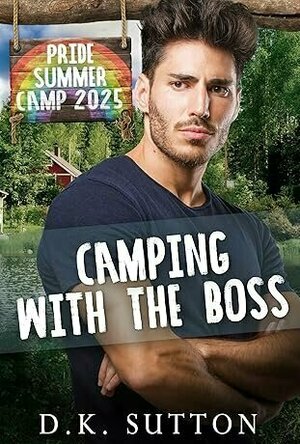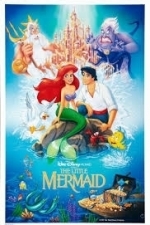Search
Lyndsey Gollogly (2893 KP) rated Exile (The Society #5) in Books
Sep 11, 2021
146 of 250
Kindle
Exile ( The Society book 5)
By Mason Sabre
Once read a review will be written via Smashbomb and link posted in comments
What happens when prophecy comes knocking on your door?
The next heart-pounding instalment in Mason Sabre's Paranormal and Urban Fantasy, Society Series, Stephen Davies has been sentenced to death ...
Everyone knows that being exiled is as good as a death sentence. Even worse when you are the son of the Alpha ...
Former ruler of his own domain and warrior for his father's pack, Stephen Davies is one of the fiercest tiger shifters the Other world has ever known. A legend in his own right, he has earned both the respect of his own kind, and the fear of the Humans.
In Exile, however, all is different ...
Stephen has barely arrived in this God forsaken place when the bus he is on is stopped and attacked by a creature he has never seen before. She's there to rescue him, but her actions cast Stephen into an unravelling new world. Not only does he find himself in unexpected places with the strangest people, but his tiger seems to think he has found the one true thing he has been looking for ...
A mate.
The only problem is that someone is hunting Stephen, and they don't care who they hurt to get to him.
Nice little catch up with Stephen and finally discovering his powers. Love the new characters and the children are intriguing I wonder what daddy alpha would have made him do especially half human ones! I’m really enjoying this series and this one didn’t disappoint.
Kindle
Exile ( The Society book 5)
By Mason Sabre
Once read a review will be written via Smashbomb and link posted in comments
What happens when prophecy comes knocking on your door?
The next heart-pounding instalment in Mason Sabre's Paranormal and Urban Fantasy, Society Series, Stephen Davies has been sentenced to death ...
Everyone knows that being exiled is as good as a death sentence. Even worse when you are the son of the Alpha ...
Former ruler of his own domain and warrior for his father's pack, Stephen Davies is one of the fiercest tiger shifters the Other world has ever known. A legend in his own right, he has earned both the respect of his own kind, and the fear of the Humans.
In Exile, however, all is different ...
Stephen has barely arrived in this God forsaken place when the bus he is on is stopped and attacked by a creature he has never seen before. She's there to rescue him, but her actions cast Stephen into an unravelling new world. Not only does he find himself in unexpected places with the strangest people, but his tiger seems to think he has found the one true thing he has been looking for ...
A mate.
The only problem is that someone is hunting Stephen, and they don't care who they hurt to get to him.
Nice little catch up with Stephen and finally discovering his powers. Love the new characters and the children are intriguing I wonder what daddy alpha would have made him do especially half human ones! I’m really enjoying this series and this one didn’t disappoint.
Merissa (13780 KP) rated A Little Christmas! Matty's Secret in Books
Dec 12, 2023
MATTY'S SECRET is part of the multi-author A Little Christmas: Season 2 series. We have met Matty before as he is Gaines' best friend. It's finally time for him to get his own Daddy. The romance between Matty and Weston was so smooth, it was divine. The pitfalls that happen aren't anything to do with them, but with Matty's ex, a thoroughly loathsome toad by the name of Putrid Peter. Trust me, it fits!
I absolutely adored how we got Matty and Weston's story, while also catching up with Warner and Terrance, and Austin and Gaines. There were other names I'm not familiar with, so I'll be on the lookout for those, but I'm REALLY hoping Arlo and Lewis are somewhere on JP Sayle's list of books to write. 😍
Another thing I loved was how Matty loves his foxes, and they were incorporated into everyday life for him by Weston. I loved Mr Tod and those plates were a magic touch.
I stopped reading for a minute in a couple of places, usually when the exercises were being described. This was nothing to do with the author and everything to do with me having aphantasia. I simply had no idea what they were doing! LOL It sounded good though.
A sweet, cheeky, sweaty, and heartstopping story full of goodness. HIGHLY RECOMMENDED by me.
** same worded review will appear elsewhere **
* A copy of this book was provided to me with no requirements for a review. I voluntarily read this book; the comments here are my honest opinion. *
Merissa
Archaeolibrarian - I Dig Good Books!
Dec 7, 2023
I absolutely adored how we got Matty and Weston's story, while also catching up with Warner and Terrance, and Austin and Gaines. There were other names I'm not familiar with, so I'll be on the lookout for those, but I'm REALLY hoping Arlo and Lewis are somewhere on JP Sayle's list of books to write. 😍
Another thing I loved was how Matty loves his foxes, and they were incorporated into everyday life for him by Weston. I loved Mr Tod and those plates were a magic touch.
I stopped reading for a minute in a couple of places, usually when the exercises were being described. This was nothing to do with the author and everything to do with me having aphantasia. I simply had no idea what they were doing! LOL It sounded good though.
A sweet, cheeky, sweaty, and heartstopping story full of goodness. HIGHLY RECOMMENDED by me.
** same worded review will appear elsewhere **
* A copy of this book was provided to me with no requirements for a review. I voluntarily read this book; the comments here are my honest opinion. *
Merissa
Archaeolibrarian - I Dig Good Books!
Dec 7, 2023
Merissa (13780 KP) rated Camping with the Boss (Pride Summer Camp 2025) in Books
Jun 30, 2025
CAMPING WITH THE BOSS is part of the Pride Summer Camp 2025 series and can be read as a standalone.
Whilst this is a romance, it is also a mystery, all wrapped up nicely with a company retreat, and a little Daddy bow on the top. Canyon and River are struggling to keep their house and their car. River works for Wade Darian and has set up a retreat, but then he disappears. Wade is none too impressed, and Canyon ends up filling River's shoes. BUT there's more going on than just Wade and Canyon getting jiggy with it. Everyone's got secrets. Who will share first?
I thoroughly enjoyed this story! There is an abundance of smaller mysteries going on, such as who is stealing the desserts from the break room, and you get answers to all of them. Obviously, the big mystery is who is behind all the drama within the company. The answer to that one, when it came, didn't come as a surprise, but I don't think it was meant to.
I loved Wade and Canyon so much, but I also want to see Ander and Jared have their story. And maybe Jet and River too. You can see where I'm going with this, surely? Suffice it to say, this was a brilliant story with amazing characters that I hope to read more of in the future. Definitely recommended by me.
** Same worded review will appear elsewhere. **
* A copy of this book was provided to me with no requirements for a review. I voluntarily read this book; the comments here are my honest opinion. *
Merissa
Archaeolibrarian - I Dig Good Books!
Jun 30, 2025
Whilst this is a romance, it is also a mystery, all wrapped up nicely with a company retreat, and a little Daddy bow on the top. Canyon and River are struggling to keep their house and their car. River works for Wade Darian and has set up a retreat, but then he disappears. Wade is none too impressed, and Canyon ends up filling River's shoes. BUT there's more going on than just Wade and Canyon getting jiggy with it. Everyone's got secrets. Who will share first?
I thoroughly enjoyed this story! There is an abundance of smaller mysteries going on, such as who is stealing the desserts from the break room, and you get answers to all of them. Obviously, the big mystery is who is behind all the drama within the company. The answer to that one, when it came, didn't come as a surprise, but I don't think it was meant to.
I loved Wade and Canyon so much, but I also want to see Ander and Jared have their story. And maybe Jet and River too. You can see where I'm going with this, surely? Suffice it to say, this was a brilliant story with amazing characters that I hope to read more of in the future. Definitely recommended by me.
** Same worded review will appear elsewhere. **
* A copy of this book was provided to me with no requirements for a review. I voluntarily read this book; the comments here are my honest opinion. *
Merissa
Archaeolibrarian - I Dig Good Books!
Jun 30, 2025
Movie Metropolis (309 KP) rated Chappie (2015) in Movies
Jun 11, 2019
A little rough around the edges
District 9 was a tough act to follow for first-time director Neill Blomkamp. His follow up to 2009’s sci-fi sleeper hit was the mediocre Elysium that whilst having a gargantuan budget and the likes of Jodie Foster and Matt Damon, failed on the most basic of levels – storytelling.
Here, Blomkamp returns a little wiser and much richer with Chappie. But does it hark back to the brilliance of District 9?
Chappie follows the story of the titular robot, created by Deon Wilson (Dev Patel), as he grows up in the violent city of Johannesburg. Due to the increasing crime rates, Wilson has created a force of robotic police officers, known as Scouts.
Despite the gritty nature of the film, the cityscapes are stunning with the sweeping shots of the South African metropolis perfectly blended with claustrophobic ruins and towering skyscrapers.
Hugh Jackman stars as ex-soldier Vincent Moore, a man hell bent on proving the capabilities of his own robot, The Moose, even if that means going against the protocols of his employers Tetravaal. Sigourney Weaver also stars as the CEO of the aforementioned corporation.
Unfortunately, side-lining Jackman and to a greater extent Weaver hurts the film. We see Chappie grow from a young child-like robot through to a young adult but Jackman and Weaver only show their faces for very brief moments at a time, though they manage to show their prowess in each scene.
Instead, we are lumbered with real-life pop group Die Antwoord in two roles as Chappie’s ‘mommy’ and ‘daddy’, and despite their decent acting skills and intriguing screen presence, they fail to make as much of an impression as the big names.
Chappie hits home hard and often on just how violent a species we are and the fact that the titular robot doesn’t understand why we can be so cruel only deepens the emotional connection forged for him.
Sharlto Copley, a Blomkamp staple, must be given high praise for crafting such a brilliant cast-member in the motion-captured Chappie. The robot rivals Caesar from Dawn of the Planet of the Apes for sheer realism, and credit must be given to the entire crew for making us feel for a character that has very few human characteristics.
Nevertheless, there is a real issue with the film’s narrative. There are moments of comedic brilliance that are hastily juxtaposed with ones of
sadness and gore, and despite Blomkamp’s best efforts to merge them together, it fails and this becomes increasingly evident in the film’s admittedly exciting finale.
Pacing, a blight that plagued Elysium, is again a problem here. The first 40 minutes of the film drag to such an extent that it feels much longer than its 2 hour running time. This is a huge shame as once it gets going, Chappie rarely lets up until the end credits roll.
Overall, despite not reaching the dizzying heights of the brilliant District 9, director Neill Blomkamp is back on the right track and has crafted a beautifully shot, richly detailed and hugely emotional film – despite his insistence on pushing the most intriguing human characters into the background.
Like the titular character himself, Chappie is charming, if a little rough around the edges and has a lack of story definition, but if you’re a fan of Blomkamp’s work, there’s no reason why you’d be disappointed with what’s on offer.
https://moviemetropolis.net/2015/03/08/a-little-rough-around-the-edges-chappie-review/
Here, Blomkamp returns a little wiser and much richer with Chappie. But does it hark back to the brilliance of District 9?
Chappie follows the story of the titular robot, created by Deon Wilson (Dev Patel), as he grows up in the violent city of Johannesburg. Due to the increasing crime rates, Wilson has created a force of robotic police officers, known as Scouts.
Despite the gritty nature of the film, the cityscapes are stunning with the sweeping shots of the South African metropolis perfectly blended with claustrophobic ruins and towering skyscrapers.
Hugh Jackman stars as ex-soldier Vincent Moore, a man hell bent on proving the capabilities of his own robot, The Moose, even if that means going against the protocols of his employers Tetravaal. Sigourney Weaver also stars as the CEO of the aforementioned corporation.
Unfortunately, side-lining Jackman and to a greater extent Weaver hurts the film. We see Chappie grow from a young child-like robot through to a young adult but Jackman and Weaver only show their faces for very brief moments at a time, though they manage to show their prowess in each scene.
Instead, we are lumbered with real-life pop group Die Antwoord in two roles as Chappie’s ‘mommy’ and ‘daddy’, and despite their decent acting skills and intriguing screen presence, they fail to make as much of an impression as the big names.
Chappie hits home hard and often on just how violent a species we are and the fact that the titular robot doesn’t understand why we can be so cruel only deepens the emotional connection forged for him.
Sharlto Copley, a Blomkamp staple, must be given high praise for crafting such a brilliant cast-member in the motion-captured Chappie. The robot rivals Caesar from Dawn of the Planet of the Apes for sheer realism, and credit must be given to the entire crew for making us feel for a character that has very few human characteristics.
Nevertheless, there is a real issue with the film’s narrative. There are moments of comedic brilliance that are hastily juxtaposed with ones of
sadness and gore, and despite Blomkamp’s best efforts to merge them together, it fails and this becomes increasingly evident in the film’s admittedly exciting finale.
Pacing, a blight that plagued Elysium, is again a problem here. The first 40 minutes of the film drag to such an extent that it feels much longer than its 2 hour running time. This is a huge shame as once it gets going, Chappie rarely lets up until the end credits roll.
Overall, despite not reaching the dizzying heights of the brilliant District 9, director Neill Blomkamp is back on the right track and has crafted a beautifully shot, richly detailed and hugely emotional film – despite his insistence on pushing the most intriguing human characters into the background.
Like the titular character himself, Chappie is charming, if a little rough around the edges and has a lack of story definition, but if you’re a fan of Blomkamp’s work, there’s no reason why you’d be disappointed with what’s on offer.
https://moviemetropolis.net/2015/03/08/a-little-rough-around-the-edges-chappie-review/
Natasha Khan recommended Selected Ambient Works 85-92 by Aphex Twin in Music (curated)

Peppa Pig Goes Around the World
Book and Entertainment
App
It’s the first day of the summer holidays, and Peppa Pig’s friends are going on holiday all...
Emma @ The Movies (1786 KP) rated The Little Mermaid (1989) in Movies
Sep 25, 2019
There are just some things that probably shouldn't be seen again, and for me the Little Mermaid is one of them. Any Disney movie with singable song in is a win for me, and of course, throw in a singalong version and it's even better. It doesn't really change the fact that... perhaps... *hushed tones* this one isn't a particularly good film. I know. I'm sorry. But apart from the bits with the big three songs in, nothing overly exciting happens. And poor old Ursula's song really isn't that good either, and I love a good villain song.
By far the best bit about this whole event was the audience. There were 17 of us watching, including the Ariel from the lobby, three children, 1 father, with the rest exclusively women over the age of 25. But out of those it was the family of four in front of me that won the evening.
They were wonderful. Mum, dad, daughter of about three and baby. Never judge a book by it's cover, I honestly thought dad was there under duress... but no I'll get to that in a bit. Cue the trailers, and The Incredibles 2. Frozone comes on the screen and daughter goes "daddy he looks like you!" And yes, the similarity was uncanny. Daughter is laughing, mum is laughing, I'm laughing. Dad turns to her completely deadpan and says "it's not funny, we don't laugh about it." But we all did. The movie starts and daughter is humming the Disney tune as the logo comes up. It was one of the cutest things I've witnessed, until the film itself starts up. Dad is singing along with he rest of us, he's even reciting the words of the script to his daughter... with voices. People... that's family goals right there.
By far the best bit about this whole event was the audience. There were 17 of us watching, including the Ariel from the lobby, three children, 1 father, with the rest exclusively women over the age of 25. But out of those it was the family of four in front of me that won the evening.
They were wonderful. Mum, dad, daughter of about three and baby. Never judge a book by it's cover, I honestly thought dad was there under duress... but no I'll get to that in a bit. Cue the trailers, and The Incredibles 2. Frozone comes on the screen and daughter goes "daddy he looks like you!" And yes, the similarity was uncanny. Daughter is laughing, mum is laughing, I'm laughing. Dad turns to her completely deadpan and says "it's not funny, we don't laugh about it." But we all did. The movie starts and daughter is humming the Disney tune as the logo comes up. It was one of the cutest things I've witnessed, until the film itself starts up. Dad is singing along with he rest of us, he's even reciting the words of the script to his daughter... with voices. People... that's family goals right there.
Merissa (13780 KP) rated A Daddy for Christmas 3: Lorcan in Books
Nov 21, 2025
A DADDY FOR CHRISTMAS 3: LORCAN tells the story of Lorcan and Cody. Lorcan is twice the age of Cody and has gone through the roughest of times recently with his ex-husband. He also wants to be a puppy, but is worried about his age. Cody, although young, is accomplished and knows what he wants, including Lorcan. He isn't the type of man to push someone else's recovery to his timetable though, which is probably what makes him such a good psychiatrist.
Their story is a sweet undertaking of trust and realistic optimism. Lorcan had every right to each one of his doubts, the same as Cody had every right to help with them. It was easy to forget that Lorcan was the older one, although that had nothing to do with him with immature. Also, seeing Lorcan become more than he had been, with the care and support of new friends, made it a worthwhile read. And please don't get me wrong - Cody is here too, every step of the way. It's just that with what Lorcan's going through, he needs a little more immediate help, but you know damn well that it works both ways between these two.
A nice segue at the end to lead to the next book, and also providing a HEA for Cody and Lorcan, although I certainly wouldn't be upset to see them in future books. A really good read and definitely recommended by me.
** Same worded review will appear elsewhere. **
* A copy of this book was provided to me with no requirements for a review. I voluntarily read this book; the comments here are my honest opinion. *
Merissa
Archaeolibrarian - I Dig Good Books!
Nov 21, 2025
Their story is a sweet undertaking of trust and realistic optimism. Lorcan had every right to each one of his doubts, the same as Cody had every right to help with them. It was easy to forget that Lorcan was the older one, although that had nothing to do with him with immature. Also, seeing Lorcan become more than he had been, with the care and support of new friends, made it a worthwhile read. And please don't get me wrong - Cody is here too, every step of the way. It's just that with what Lorcan's going through, he needs a little more immediate help, but you know damn well that it works both ways between these two.
A nice segue at the end to lead to the next book, and also providing a HEA for Cody and Lorcan, although I certainly wouldn't be upset to see them in future books. A really good read and definitely recommended by me.
** Same worded review will appear elsewhere. **
* A copy of this book was provided to me with no requirements for a review. I voluntarily read this book; the comments here are my honest opinion. *
Merissa
Archaeolibrarian - I Dig Good Books!
Nov 21, 2025
Merissa (13780 KP) rated A Daddy For Christmas 3: Rowan in Books
Dec 17, 2025
A DADDY FOR CHRISTMAS: ROWAN is part of the multi-author series of almost the same name. I'll let you figure that part out!
Damon is co-owner of a sex-toy business, usually run by his brother, Nigel. Damon took the week before Christmas off from work to avoid the stress, but Nigel had other ideas, so Damon got called in just before Christmas, and to top things off, also had to attend a charity fancy-dress ball in the middle of nowhere on Nigel's behalf. Not only did he not want to go, but that also meant he would spend time with Rowan, Nigel's driver, whom he was attracted to but was off-limits as an employee. Rowan, on the other hand, is prepared to use anything and everything to help him gain time with Damon, even a freak snowstorm.
This is a fast-paced novella, where most of the longing has already happened. Rowan was a little too bratty, too forceful/manipulative, for my liking, but it ticked Damon's boxes, so that's the main thing. There is plenty of heat, even in a snowstorm, that continues afterwards.
If you've read any of Ms Davison's Kinky Housemates series (highly recommended!), then you may recognise some of the names that pop up here. It was great to see them again!
Overall, this is a forced proximity, Scrooge-Christmas story with plenty of heat to keep you warm. Recommended by me.
** Same worded review will appear elsewhere. **
* A copy of this book was provided to me with no requirements for a review. I voluntarily read this book; the comments here are my honest opinion. *
Merissa
Archaeolibrarian - I Dig Good Books!
Dec 17, 2025
Damon is co-owner of a sex-toy business, usually run by his brother, Nigel. Damon took the week before Christmas off from work to avoid the stress, but Nigel had other ideas, so Damon got called in just before Christmas, and to top things off, also had to attend a charity fancy-dress ball in the middle of nowhere on Nigel's behalf. Not only did he not want to go, but that also meant he would spend time with Rowan, Nigel's driver, whom he was attracted to but was off-limits as an employee. Rowan, on the other hand, is prepared to use anything and everything to help him gain time with Damon, even a freak snowstorm.
This is a fast-paced novella, where most of the longing has already happened. Rowan was a little too bratty, too forceful/manipulative, for my liking, but it ticked Damon's boxes, so that's the main thing. There is plenty of heat, even in a snowstorm, that continues afterwards.
If you've read any of Ms Davison's Kinky Housemates series (highly recommended!), then you may recognise some of the names that pop up here. It was great to see them again!
Overall, this is a forced proximity, Scrooge-Christmas story with plenty of heat to keep you warm. Recommended by me.
** Same worded review will appear elsewhere. **
* A copy of this book was provided to me with no requirements for a review. I voluntarily read this book; the comments here are my honest opinion. *
Merissa
Archaeolibrarian - I Dig Good Books!
Dec 17, 2025

Kill Switch
Book
"I've done far worse than what I went to prison for. She has no idea how bad this can get." ...
Devil's night kill switch dark twisted







